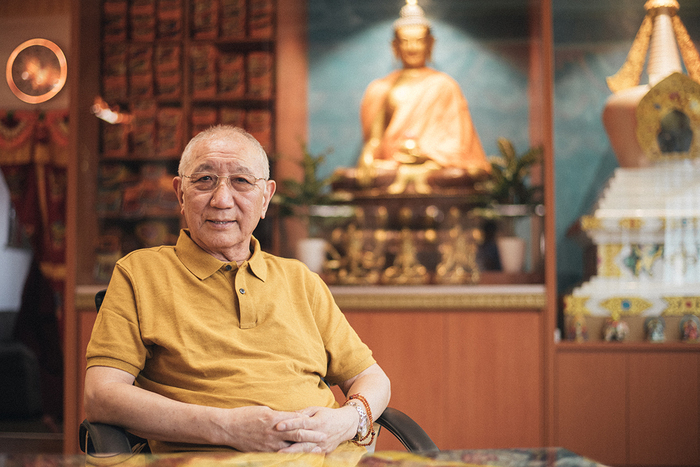
It’s winter in Singapore, but of course that means it’s still outrageously hot and humid. I’m in Geylang passing by a huge fruit market with the smell of durian in the air, on my way to meet His Eminence Loden Sherab Dagyab Rinpoche, a revered Tibetan Buddhist master, scholar, and lineage holder with a wealth of experience and wisdom to share.
Born in eastern Tibet in 1940, Dagyab Rinpoche was recognized at a young age as the reincarnation of the previous Dagyab Kyabgon and later enthroned as the head of the Dagyab region, with the responsibility of overseeing dozens of small local monasteries. Educated at the prestigious Drepung Monastery, Rinpoche received a comprehensive education in Buddhist philosophy, psychology, and metaphysics, and went on to complete his Geshe Lharampa degree – the highest academic distinction within the Gelug tradition of Tibetan Buddhism.
As a result of the political turmoil in Tibet during the late 1950s, Rinpoche was forced into exile, eventually settling in Germany, where he has dedicated his life to preserving and disseminating the rich cultural and spiritual heritage of Tibet.
Throughout his illustrious career as a Tibetologist at the University of Bonn, Rinpoche has authored numerous books and articles, and he also founded Tibethaus Deutschland, working tirelessly to bridge the gap between traditional Tibetan Buddhist teachings and the needs of modern society. His unique insights and compassionate guidance have touched countless lives, both within the Buddhist community and beyond.
During our interview held at the serene Gaden Shartse Dro-Phen Ling Buddhist Temple in Singapore, we had the opportunity to delve into a range of topics close to Rinpoche's heart. He offered valuable advice for newcomers to Buddhism, emphasizing the importance of approaching the teachings with an open mind and a genuine desire to understand their true essence. Rinpoche also shared his perspective on the vital role that laypeople play in upholding the Dharma, highlighting their potential to make a significant impact in preserving and promoting the Buddhist tradition.
Moreover, Rinpoche passionately spoke about the importance of lifelong learning, asserting that age should never be a barrier to our pursuit of knowledge and spiritual growth. With his own unwavering commitment to study and practice, Rinpoche is a living embodiment of this principle, inspiring us all to strive for a deeper understanding of ourselves and the world around us.
We invite you to immerse yourself in this enlightening conversation with His Eminence Dagyab Rinpoche, and hope that his words of wisdom will inspire you to embark on your own journey of spiritual exploration. Enjoy!
Study Buddhism: Although most of us spend a lot of time chasing happiness, usually in something external – relationships, shopping, eating, entertainment and so on – not many of us can say that we are genuinely and deeply happy. How can we cultivate self-awareness and introspection in order to identify and address the root causes of our unhappiness, ultimately taking responsibility for our own happiness?
His Eminence Dagyab Rinpoche: We cannot expect our happiness to come from the outside. We cannot get this happiness from the buddhas or bodhisattvas or whomever. No one can give happiness to us. We need to think, and we need to find out, what are the sources for our unhappy life that we might be leading? Who produced it?
At the end, we will come back to our own production. I made and I followed my own conceptions. Because of that, I become unhappy. Therefore, we always need to check our own mind, attitude, and way of thinking. This is the only way we can produce our own happiness.
The Indian master Nagabodhi, I think it was, said, "No one possesses enlightenment. No one can give this possession to you. But you yourself, you need to receive it. You need to find out. Everything is in your hands." This is the beauty of Buddhism.
You have many decades of experience teaching students of all levels across the globe. What advice do you have to those just embarking on the Buddhist path?
Life has so many different kinds of good experiences and bad experiences. We call them “suffering” and “happiness.” None of these simply come automatically, without any reason. They have causes and conditions. In Buddhism we find many explanations about how happiness arises, how suffering arises, how we can remove suffering, and how we can produce happiness.
Therefore, it is very important to actually study Buddhism and to know Buddhist explanations. Buddhism is not a doctrine that relies only upon faith, saying, "Whatever the Buddha said, we have to follow it." Not at all! Buddha just gave information, advice, and suggestions. Whether we follow his suggestions or not, that's up to us. Buddhism isn't dogmatic, so it's a very suitable religion for the modern world. Perhaps Buddhism is not even a religion! However, the ideas and theories are very much up to date for today's needs.
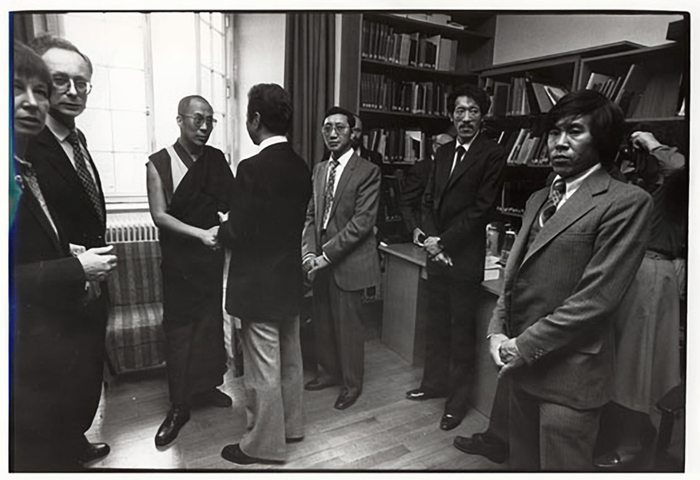
I always refer to His Holiness the Dalai Lama's message. The Dalai Lama has expressed so strongly, again and again, that as Buddhists, we need to practice with a proper understanding of Buddhism. That means that practicing with blind faith, without knowing, won't help ourselves or others.
Therefore, as soon as we are interested in Buddhism, we need to study properly! As good as possible! Although you might be reaching 80 like me, you can still be interested in reading, learning and studying and listening to many teachings through YouTube. It's very helpful for me. Even if you are over 100 years of age, you still have the possibility to study!
This is excellent advice! I have a friend who is in his 90s and only came to Buddhism in his late 60s, and I think he is an excellent practitioner. When we think of Tibetan Buddhism, many students automatically regard meditation, prayers, and reciting mantras as the essence of Buddhist practice. What do you think should be the basis of one’s Dharma practice?
When we meditate, some parts of the meditation belong to the method side, and some other parts, such as meditation on emptiness, belong to the wisdom side. During the time in between meditation sessions, we have many other possibilities to accumulate good deeds, such as helping others. As soon as we awaken in the morning, during our daily life, we are always communicating with people. This communication is a very important practice for all of us. Because of this, I'm always saying, daily life practices are really our main Dharma practice.
Meditation, recitation, and making offerings are more or less, if I may say, secondary practices. These are not the main thing. The main thing is our daily life. As soon as I meet someone, I produce some good karma or bad karma because of how I engage or approach this person. Actually, it’s good not to see any differences in time or action, that this belongs to this and that belongs to that. You can't really separate meditation and daily practices.
In bodhisattva practice we talk about the ten or six perfections. If we take the six perfections, each perfection also needs to have the other five perfections within it. For example, the perfection of giving has to have giving alongside moral conduct, patience, effort, concentration, and wisdom. When we talk about concentration, that too also needs to have giving and the rest of them. Therefore, all the six perfections must work and accumulate together in order for bodhisattva practice to function properly. It's always combined.
You often say that the goal of the Mahayana path is to help others. What is the best way to achieve this aim?
Many people think and say that our goal as Buddhists is to reach enlightenment but that's not precise enough. Actually, when we talk about bodhichitta in order to reach Buddhahood, which is enlightenment, the definition of bodhichitta is, "In order to help others, we are aiming for Buddhahood." So, there are two things.
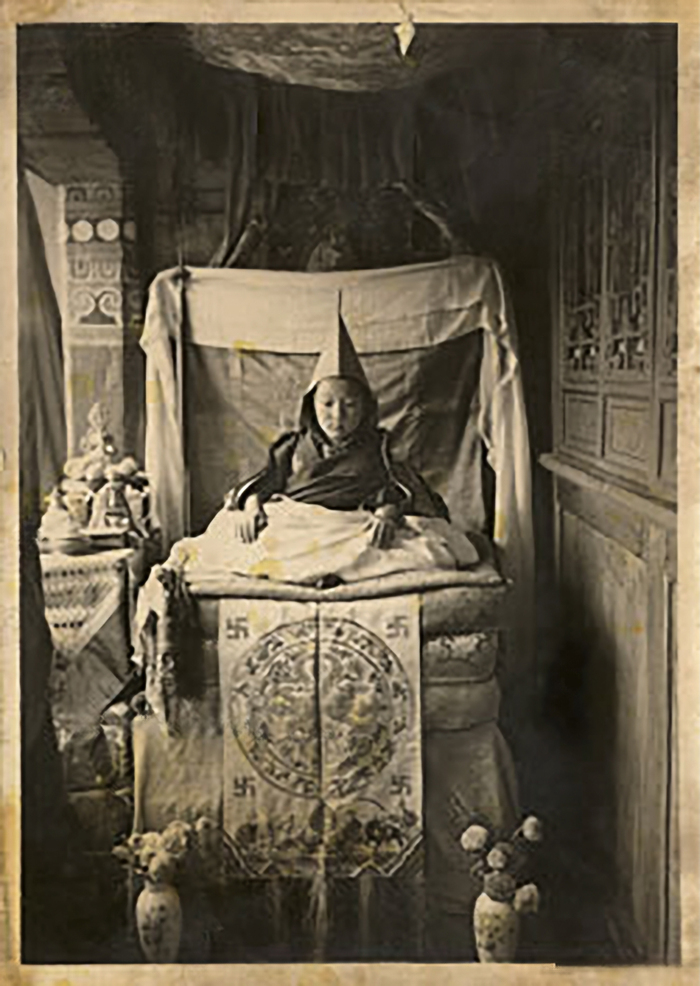
To help others doesn't just mean helping on the physical level, but mainly helping on the spiritual level. In order to help through the spiritual level, you must be advanced and know exactly what the problems are and what are the necessary qualities you have to possess. It's very important to know the exact meaning of helping others.
How can we cultivate mindfulness and self-reflection in our daily lives to identify and overcome attachment to material objects, ultimately distinguishing between our genuine needs and desires rooted in ignorance and ensuring that our choices contribute to our long-term well-being and spiritual growth?
Attachment comes from one's own ignorance, because we are so stubborn, and we don't know what is really good for us. As soon as I find a certain object which is nice, which I find quite beautiful or useful, then I just grasp onto it. And that produces within me something very uncomfortable, which is attachment. Therefore, we must take care. We can see nice objects but shouldn't grasp onto them.
The Dalai Lama made remarks during a talk that regardless of whether you are driving a Mercedes or a very cheap car, the main question is about how you grasp and deal with objects. If you have very strong attachment to that very cheap car, then it's worse to drive that than a Mercedes! To drive a Mercedes without having attachment, that's absolutely alright, no problem! Simply put, possessing luxury things and non-valuable things can both cause attachment.
Here, we are talking about appearances and grasping onto them. Appearances themselves don't bind us to samsara, but it is our grasping onto appearances that binds us to samsara. Just check whether you really need something, whether it's really good for you, not just temporarily but in the long run.
For example, if you go shopping and you see some things that you are interested in, the second thought should be, "Do I really need it? Why do I really need it? Do I have to buy this or not?" Ask yourself three or four times from different perspectives and check it. At the end, the answer is mostly, "Actually, not." Because I have one watch here, and I go to the watch shop and see a beautiful watch and think that I want to buy such a nice watch, and it's not so expensive. But then I say, "Do I really need two watches? Why is it that this watch that I already have is not enough? Why do I need a second watch?" Then I realize that I don't actually need it, the one I have works perfectly. Do something like this, I think.
You were born in Tibet, where laypeople look at the monastic community as the upholders of the Dharma. But in the modern world, and especially in the West, monasticism isn’t easy. How can laypersons actively contribute to the preservation and dissemination of Buddhist teachings, and recognize their crucial role in upholding the Dharma alongside ordained practitioners?
The Dalai Lama has said that if we rely only on monks and nuns to uphold the Dharma, Buddhism will only exist for just another few generations. The majority of Buddhists are not ordained. The majority of people are laypersons, even historically. For example, in the Heart Sutra, the Buddha was with a great assembly of the monkhood and all the Mahayana bodhisattvas. From an iconographic point of view, these bodhisattvas were all laypeople.
The so-called eight great bodhisattvas, eight very close disciples of the Buddha, and the sixteen very close bodhisattvas, they are all laypersons. Mahasiddhas and many Indian masters and panditas were generally not ordained, most of them were laypersons. This means that laypersons and ordained persons are equally important in upholding the Dharma. Therefore, it is extremely important that laypeople who are interested in Buddhism study Buddhism and Buddhist philosophy thoroughly. After studying properly, once they finish and are fully qualified, they should be able to get geshe degrees without having to be ordained.
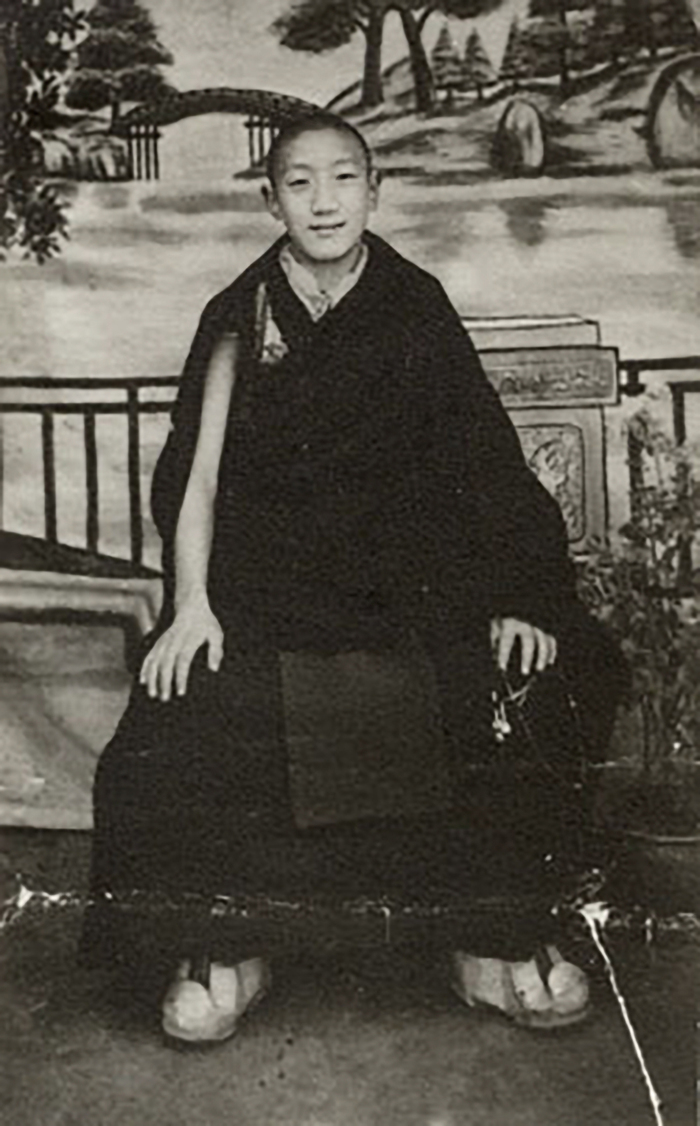
The geshe degree has nothing to do with spirituality, nothing to do with ordination. It's an academic title. Therefore, those who study Buddhist philosophy, whether you're from the West or the East or Africa or wherever, you should be able to get the geshe degree.
On another occasion, the ex-monks of Gyuto Monastery, there were over 100 of them, gathered in Dharamsala and offered a long-life prayer for the Dalai Lama. During this ceremony, the Dalai Lama explained to those people, saying, "You are now ex-monks, but you all have a certain level of study. You should not forget all of this, you need to practice for yourself and to benefit others. You all have this responsibility." From this idea, it's very important to know that we laypersons are able to work as Dharma teachers, and we should be very proud of that. There will be more and more lay teachers in the future, so laypersons should take responsibility properly in order to serve the Buddhadharma.
Would you mind quickly explaining why the Buddha taught such a wide variety of teachings, from the Theravada up to Tantrayana?
The Buddha taught different levels of teachings because, immediately after his enlightenment, he met a group of people who were only ready to understand a certain level of the four noble truths. These truths are: suffering, the cause of suffering, freedom from suffering, and the cause for freedom from suffering. Later on, there were some people who were more advanced, so he explained them in more detail. And then even later, he explained them in an even more subtle way. Therefore, there were three occasions where the Buddha taught the four noble truths, each time in different ways. There are also many other occasions with teachings that are slightly or totally different, because there were different listeners, different audiences.
The Theravada tradition is the basic Buddhist teaching or doctrine. In Tibetan Buddhism, we need to study all the Theravada theories and practices as a basis. Without having the Theravada or Hinayana practices, there's no way to understand the Mahayana or Tantrayana.
As a foundation, we need to understand a certain level, and then on top of that, if we are ready to know a deeper level, we can add the Bodhisattvayana. And if we reach a higher level of consciousness and understanding, then we are ready to practice and study Tantrayana. It's not a question of choice, it's just the steps to achieve enlightenment.
In the West, many students in the Tibetan Buddhist world dive headfirst into tantra practice pretty early on. Is this advisable?
We need to distinguish between tantra and Buddhist tantra. When we talk about tantra, we mean Buddhist tantra, as opposed to Hindu tantra. Buddhist tantra is a special method to achieve Buddhahood fast. But the practice and theory are based on bodhichitta and emptiness. Without both bodhichitta and emptiness, there's no way to practice Buddhist tantra.
While you practice tantra, you are not practicing on a conventional level, but rather on the tantra level, that's the term I like to use. Tantra level means that you are not supposed to be a normal, ordinary human being, but you need to practice deity yoga. Deity yoga can only be practiced with a proper understanding of emptiness.
How can we cultivate a clear understanding of emptiness?
Emptiness is a well-known word in Buddhism, so we must know what emptiness is.
Emptiness is the absolute nature of all phenomena. All phenomena, for example ourselves, other objects, matter, states and situations, everything has two sides. One side is the conventional side, and the other side is the absolute side, the absolute nature. We have to know the real state of all phenomena. And so the Buddha gave us information about relative truth and absolute truth, what we call the two truths.
These two truths are combined within each object or matter or state. We must be in a position to distinguish between them. Through this understanding, or what I usually call the communication between our mind as subject and other matter as object, this communication between subject and object must take place correctly.
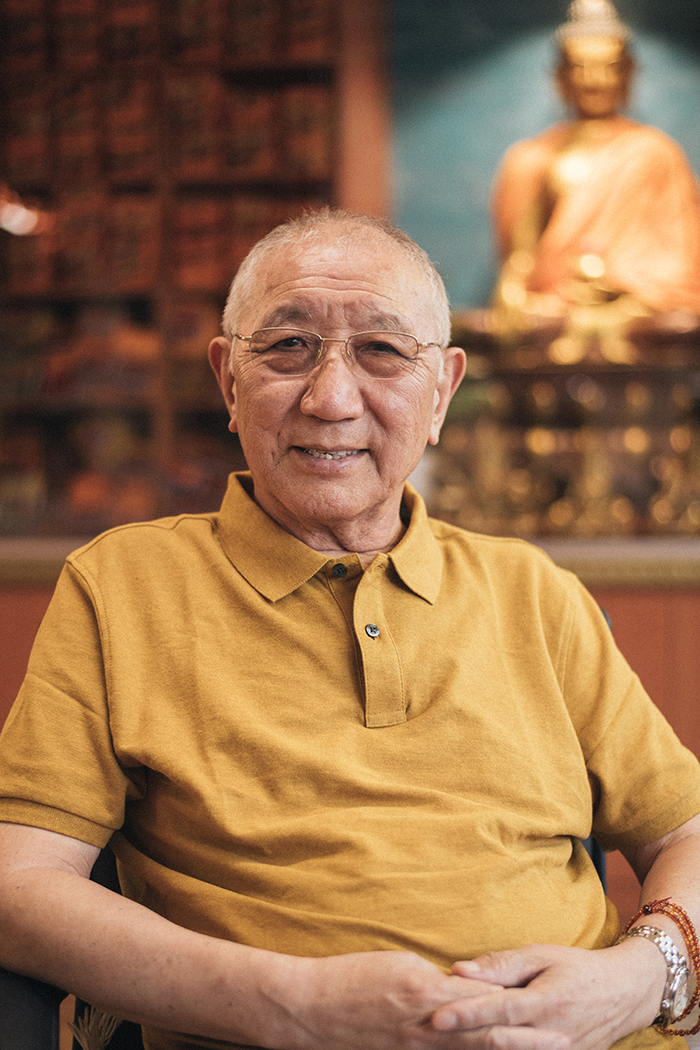
Mostly, we are just confused. We usually just think that whatever we see is the absolute state. Because of that, we start to grasp onto things and generate or produce many kinds of defilements. So, if you understand the subject-object relationship, then we will start to properly understand the absolute nature of all phenomena.
Those with a deeper knowledge of Buddhist philosophy will recognize the importance of logic and debate in cultivating a clear understanding of different aspects of the teachings. For tantra practice, are we relying on logic or faith?
Whether tantra is based on faith or not, that's a big question. I would say no. Tantra is very much based on logic related to the progress of one's mental disposition. If you understand tantra properly, there's not even a tiny point of tantra practice that you can take out, because the link between one point to the next is strictly and strongly connected.
When you understand properly the logic of tantra, you will automatically generate very strong faith. You can use that word, but I don't know how suitable the word "faith” is, because we are never forced to believe anything simply because the Buddha told us to, or because our teacher told us, or because it's written in a text. Still, we Buddhists can use the word "faith" for lack of a better term. Anyhow, these things are not the key point. The key point for us is, "Why? Why did Buddha say this? Why did the Indian masters or Tibetan masters say this?" This way, all of the reasoning comes out. Through reasoning, we can understand the proper meaning.
Rinpoche, thank you so much for distilling your life’s work into this short interview for us, we really appreciate it!